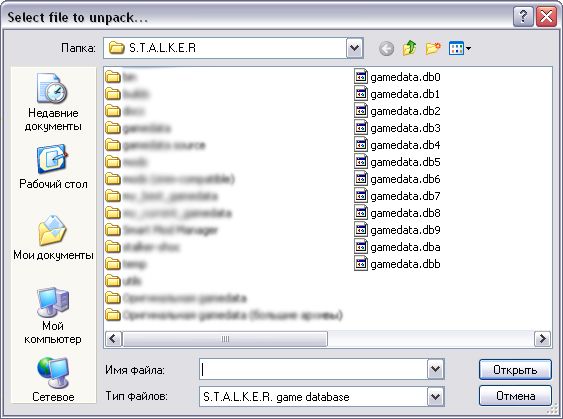
Programmu Stalkerdataunpackerru
Erkunde Ankes Pinnwand „Trauerkarten“ auf Pinterest. Weitere Ideen zu Condolences, Diy cards und Handmade cards. The Master's programme is based on an experimental pedagogy where theoretical knowledge is integrated with process-oriented and artistic investigations, where the development of the subject takes place in an exploratory and artistic approach to the practice and profession.
Reshebnik po elektrotehnike berezkina. If you live in Bangalore and would like to experience the topper first on your own bed, send us an email at info@lazuli.in and we will have this sent to your home to try. Filled with ultra-fine microfiber, the topper has a 100% cotton 300 thread count shell and starts at INR 3,499 for a single. NEXT – bedsheets and pillow cases.
The Executive Board, in accordance with, shall mantain a publicly available list of designated operational entities. The table below provides the list of accredited and provisionally designated operational entities for validation functions. These entities are accredited for the sectoral scopes shown below in the table and qualify to submit requests for project registration in these sectoral scopes. The Executive Board, at its 92 nd meeting, requested the secretariat to make available information on the UNFCCC CDM website, of entities that are accredited but have not made any submissions within the last 20 months and the date of the last submission.
The following is the list of the entities that have not made submissions within the last 20 months. Number Entity Last submission of request for registration or publication of monitoring report E-0006 E-0034 E-0044 E-0050 E-0054 Note: Information as of 21 February 2019. Withdrawn/Expired DOEs Ref.
Number Entity Withdrawn/Expiry date E-0002 28 Feb 2015 E-0003 19 Feb 2016 E-0007 10 Jun 2014 E-0008 22 Feb 2012 E-0010 09 Feb 2017 E-0013 05 Jul 2017 E-0014 01 Nov 2009 E-0018 17 Oct 2008 E-0027 08 Nov 2013 E-0028 28 May 2013 E-0029 17 Oct 2008 E-0030 28 May 2013 E-0031 26 Apr 2018 E-0038 11 Apr 2017 E-0040 30 Dec 2014 E-0041 04 Jul 2017 E-0042 08 Oct 2015 E-0045 14 Jan 2015 E-0048 20 Apr 2011 E-0049 09 Dec 2014 E-0055 24 Nov 2016 E-0057 26 Feb 2015 E-0060 23 Sep 2014 E-0063 19 Jan 2016 E-0064 06 Aug 2014.
See also: and In his 1936 Hitler: A Biography, German historian remarked that within the SA ranks, there were 'large numbers of Communists and Social Democrats' and that 'many of the storm troops were called 'beefsteaks' – brown outside and red within.' The influx of non-Nazis into the Sturmabteilung membership was so prevalent that SA men would joke that 'In our storm troop there are three Nazis, but we shall soon have spewed them out.' The number of 'beefsteaks' was estimated to be large in some cities, especially in northern Germany, where the influence of Gregor Strasser and Strasserism was significant. The head of the Gestapo from 1933 to 1934, Rudolf Diels, reported that '70 percent' of the new SA recruits in the city of Berlin had been communists. Other historians contend that the SA and SS were awash with Marxists and socialist revolutionaries, where 'The utopians and those who speak of a Marxist republic have the highest membership in the SA and SS (77.6 and 63 percent respectively).' Some have argued that since most SA members came from working-class families or were unemployed, they were more amenable to -leaning socialism, expecting Hitler to fulfill the 25-point.
However, historian Thomas Friedrich reports that the repeated efforts by the (KPD) to appeal to the working-class backgrounds of the SA were 'doomed to failure', because most SA men were focused on the cult of Hitler and destroying the 'Marxist enemy'. The 'beefsteak' name also referred to party-switching between Nazi and Communist party members, particularly involving those within the SA ranks. See also [ ]. • – Albania ('Blackshirts') • • - Italy • – United Kingdom ('Blackshirts') • – Republic of China and Taiwan ( ) • – Ireland • – parody of the blackshirts in the writings of • - independent paramilitary organizations of ex-German Army soldiers and unemployed workers who fought against Communist uprisings after World War I • – Ireland • – Mexico • – ethnically Dutch South Africans () • – paramilitary wing of the, the Norwegian National Socialist party 1940–45. • • – Romania ('Greenshirts') • – ('Blackshirts') • • - another Nazi Party organization • – Canada ('Blueshirts') • – Portugal • – United States ('Silvershirts') • • • • References [ ] Notes.